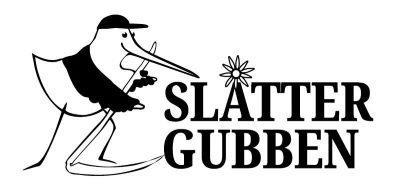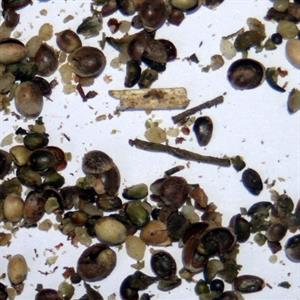2,5kg - Hamparens
Exciting groundfeeding with small and rich seeds!
- In stock
Description
2.5 kg hemp chaff from organic hemp cultivation in Latvia.
The chaff can vary in its composition from year to year and between different large bags we receive, so it may not always look exactly like the picture on the webshop. But we strive to keep the images up to date with what we deliver!
This is the most interesting chaff I’ve ever seen! The three great things about it are:
1. It is practically free from dust and shell remnants. However, a lot of it is quite crushed, so the chaff may appear a bit "floury." The density is high, so it’s mostly seeds you’re paying for!
2. A large proportion of the seeds in this chaff are hulled hemp seeds – the fattiest and most protein-rich seeds you can get. They are small and easily eaten by birds with smaller beaks.
3. The weed seeds present are small and attractive, mostly including pigweed, moneywort, and cornflower. There are no seeds from bindweed or dockweed, for example.
Liked by: I would say almost all birds will like this! Those with small beaks, like Eurasian tree sparrows, robins, and blackcaps, will especially benefit! Of course, all finches, siskins, winter redpolls, finches, goldfinches, tits, bullfinches, etc., will also enjoy it!
Perfect for ground feeding on frozen or cleared ground. I think it’s an excellent food in northern Sweden during early spring when a lot of mountain finches and pine finches come, as well as the rarer snow bunting and reed bunting, which really like small seeds they can pick on hard snow.
If the ground isn’t frozen and snowy, it may be helpful to place the hemp chaff in birdbaths or similar containers so it doesn’t just disappear into the grass.
Ground feeding on large areas is a very good way to feed birds. Most prefer to eat from the ground. If you don’t spread it on the exact same little spot every day, it also improves hygiene.
Feel free to get in touch and provide feedback on how it works!
The hemp chaff is organically grown in Latvia. It causes a transportation emission to our warehouse of 0.017 CO2 equivalent/kg. Read more about these calculations here.




